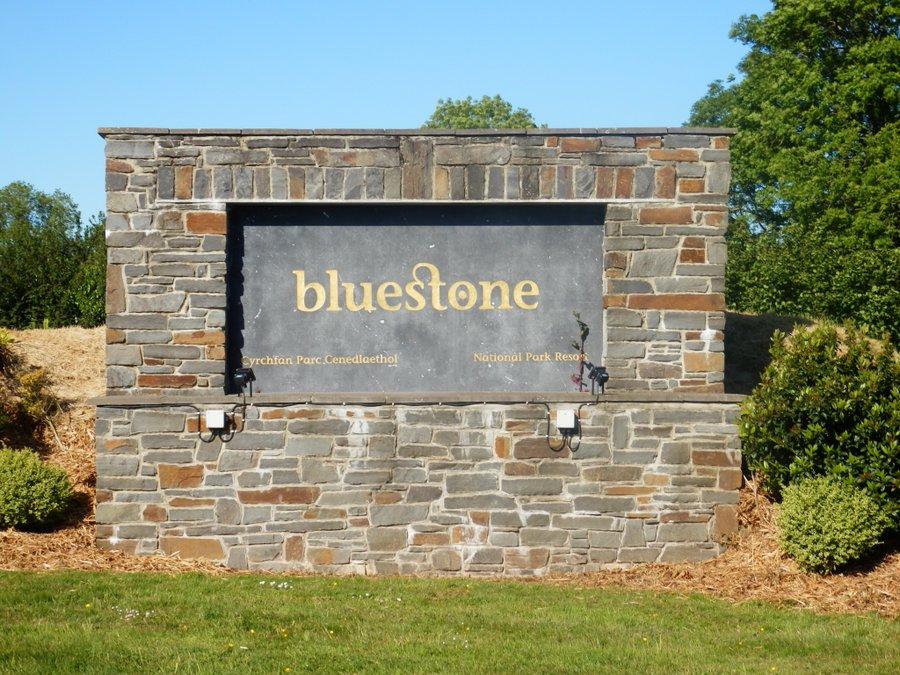Business
Tata Steel bosses face grilling in the Senedd over plans to cut up to 2,800 jobs

REPRESENTATIVES of Tata steel faced a grilling by MSs over plans to cut up to 2,800 jobs.
Paul Davies, who chairs the Senedd’s economy committee, asked whether the decision to close the two blast furnaces and build an electric arc furnace is purely a financial one.
Along with the jobs at Port Talbot, around 300 jobs at the company’s Llawern plant could also go.
Rajesh Nair, chief executive of Tata Steel UK, said finances have played an important part but the decision is not purely monetary.
He told the committee the company’s assets in Port Talbot are reaching their end of life, compromising reliability, safety and timeliness of delivery.

Mr Nair, who has worked for the company for 25 years, said the business has been losing a tremendous amount of money over the past few years.
He said: “Just for the last quarter, the business turned a loss of about £160 million and in the first nine months of this financial year it’s about £330 million.
“We are likely to turn up with a loss of nearly half a billion in just one year – this is just not sustainable nor viable for any company to handle.”
Mr Nair suggested the multi-union Syndex plan, which involves keeping at least one of the blast furnaces, would add nearly £200 million to the cost and delay the electric arc furnace (EAF).
“We will not be in a position to build the EAF in an existing steel shop,” he said. “And if you don’t have a steel shop operating, there is no way the blast furnaces can be kept going.”
Asked if Tata would look at alternatives if the UK Government offered more money, Mr Nair said the company would be more than happy to examine additional investments.
He told committee members: “On the other side of the transformation, we will have a viable business – which the UK steel business has not been for the past 15 years.”
Hefin David pointed out that a General Election is on the horizon – and an incoming Labour UK Government could offer a significantly different package of support.
The Labour MS, who represents Caerphilly, asked whether Tata would consider delaying decisions on the second blast furnace until after the state of political flux is resolved.
Mr Nair stressed that there is an imperative to “get going” with the EAF, saying the company has had conversations with UK Labour leader Keir Sir Starmer.
He told the committee: “Managing the business in the existing set up is going to be a huge burden on the company and on the shareholders.
“I don’t think any government, Dr David, with due respect, would be willing to fund losses.”
Vikki Howells, the Labour MS for Cynon Valley, asked how the company has sought to minimise potential job losses and the wider impact on Port Talbot.
Mr Nair told committee members that the company has carefully considered the impact – not only on staff, but also on contractors and the community.
He added that a large part of the £1.25 billion investment will go into the Port Talbot ecosystem.
Chris Jaques – Tata Steel UK’s chief HR officer – recognised it is a difficult time, saying a transition board has been set up to look at short-term support and long-term regeneration.
He told Ms Howells that the business decided to continue operating the hot strip mill in Port Talbot following talks with trade unions, securing 200 jobs.
Mr Jaques said the statutory consultation, which began on February 2, will be for a minimum of 45 days and the company will seek to maximise the number of voluntary redundancies.
Business
Bluestone National Park Resort payments to county to end

A CALL to end a 20-year legal agreement for financial contributions associated with the creation of Pembrokeshire’s Bluestone National Park Resort has been backed by both the county council and the national park.
In related submitted applications to both Pembrokeshire Coast National Park and Pembrokeshire County Council, Bluestone Resorts Ltd asked to end a 2004 Section 106 legal agreement, used to pay towards various projects including enhancements to works including footpaths and bridges.
Bluestone has paid nearly £320,000 to date, and offered two further one-off payments to complete the agreement, reports for the two authorities have said.
Works have been predominantly in the area surrounding Bluestone, but include projects as far afield as Nevern, Solva, and Haverfordwest.
A supporting statement says that, since the agreement was made back in 2004, Bluestone has paid nearly £280,000, with the offer of a final fee of £113,000 being paid, spread over 2023, 2024, and 2025.
A report by national park officers, ahead of the Pembrokeshire Coast National Park Development Management Committee meeting of April 24, where it was recommended for approval, said: “Having considered the information submitted, officers consider that provided the two final payments [the 2023 having been made] are received the legal agreement has served its purpose and can be discharged.
“In order to ensure the two final payments are made, a modification to the Section 106 legal agreement is supported. This decision is supported by Pembrokeshire County Council, who have received a concurrent application which is also recommended by officers for modification.”
The report said the £280,000 figure presented by Bluestone actually amounted to £318,703.87, taking into account a 2023 payment of £38,891.73.
It concluded: “The authority is satisfied that subject to two further payments of £38,000 to be made in August 2024 and August 2025, the obligation no longer serves a planning purpose and can be discharged and as such the obligation should be modified accordingly.”
At the April 23 meeting of the county council’s planning committee, members backed the application by 11 votes to two, following a recommendation for approval by Cllr Brian Hall.
The following day, the related application came before national park planners, with three members leaving the meeting as they had declared related interests in the item.
Cllr Rhys Jordan, who had also been present at the previous day’s meeting, moved approval: “The economic benefit of this facility is huge to Pembrokeshire; whilst these contributions may come to an end, the contribution to the county is huge.
“Bluestone has been at the forefront of all things hospitality, and everything they do is with the environment in mind.”
That application was unanimously approved by members present.
Business
Largest Welsh port appoints communications and marketing director

THE Port of Milford Haven has announced that Anna Malloy has been appointed as its first Communications and Marketing Director.
Anna is appointed to the Senior Management Team and this new role will be pivotal to the delivery of the Port’s long-term growth and diversification agenda and in ensuring that its obligations to coastal communities, future generations and to nature are honoured.
Tom Sawyer, CEO of the Port of Milford Haven, congratulated Anna and said: “Anna has a key role to play in our future and it’s doubly lovely to see ‘port-grown-talent’ flourish and for colleagues to progress up through our organisation.”
Anna will lead across the public affairs, marketing, sustainability, media relations, and community relations activities. She will therefore play a central role in the development of new and existing partnerships, including the Celtic Freeport, the Milford Haven Energy Cluster and the Celtic Collection; sitting alongside the delivery of major projects like Milford Waterfront and the Pembroke Dock Renewables Terminal.
“This is such an exciting opportunity. I am proud to be joining the Senior Management Team and look forward to delivering our ambitious strategy,” commented Anna Malloy, Communications and Marketing Director.
She added: “The Port of Milford Haven is playing a key role in the transition of South-West Wales’ economy to a decarbonised future. A beautiful place, with great people, that I am privileged to call my home.”
Business
Welsh producers to showcase at UK’s leading food and drink show

WALES’ finest food and drink companies are gearing up to showcase their innovative spirit and exceptional quality produce at a pivotal show in the UK food and drink calendar.
The group includes 44 Welsh food and drink companies who will be attending the Farm Shop & Deli Show 2024 being held at the NEC in Birmingham between 29 April – 1 May. This event will serve as a prime opportunity for both established companies and emerging stars from Wales to exhibit their products to a national audience.
Supported by the Welsh Government, 13 of Wales’ well-known food and drink companies will be exhibiting on the Welsh Government Pavilion at the show. A further 20 Welsh up and coming and emerging stars will be exhibiting as part of the Cywain Showcase stand, while another 11 Welsh companies will be exhibiting for 1 day during the show on the Cywain Test Trading stand, these companies will change each day.

Welsh Government Cabinet Secretary for Climate Change and Rural Affairs, Huw Irranca-Davies MS, said, “The Farm Shop & Deli Show provides unparalleled opportunities for Welsh companies to showcase the exceptional quality and innovation of their products. These events are crucial for promoting Welsh products and reinforcing Wales’ reputation for quality and innovation in food and drink.
“The Welsh Government is dedicated to supporting our producers, ensuring they have the platforms needed to succeed and contribute to Wales’ reputation as a place of outstanding natural produce. We are committed to helping them thrive in these important markets and continue to build on Wales’ esteemed reputation.”
Welsh producers exhibiting as part of the Welsh Government Pavilion includes Calon Wen Organic Dairy, Cradoc’s Savoury Biscuits Ltd, Crwst Ltd, Golden Hooves, Hive Mind Mead & Brew Co, Mario’s Ice Cream, Morning Foods, Rural Foodies Ltd/Coco Pzazz, Snowdonia Cheese Company Ltd, The Anglesey Sea Salt Company/Halen Môn, Tregroes Waffles, Welsh Hills Bakery and Welsh Lady Preserves.

The 31 Welsh companies making up the showcase under the support of Cywain, a Welsh Government funded project that works with food and drink producers across Wales, helping them grow and develop their businesses, will feature products from alcohol, coffee, tea, chocolate, cheeses, rapeseed oil to preserves, sauces and spices.
Commenting on being part of the Welsh Government delegation, owner Alison Lea-Wilson from Anglesey sea salt company Halen Môn said, “We’ve attended Food & Drink Expo several times and always find it an interesting mix of people giving us a chance to stay updated on the food and drink industry. We’re looking forward to catching up with our current customers at the Farm Shop & Deli Show this year and are excited about the possibility of meeting new ones, particularly ingredient suppliers.
“It’s also our first time here as a B Corp business, which is a big step for us, and we’re launching our new Beetroot ketchup, adding a vibrant touch to our product line.”

Cradoc’s Savoury Biscuits Ltd is set to feature their new Gluten Free range at the Farm Shop & Deli Show, with products ready to order alongside their traditional offerings. The company is also proud finalists for the Artisan Food and Drink Business of the Year at the Wales Food and Drink Awards 2024.
Reflecting on a year of innovation and growth, Allie Thomas from Cradoc’s Savoury Biscuits said, “2023 was a pivotal year for Cradoc’s. We embarked on a journey of transformation, starting with a significant update to our packaging, which is our main sales tool and we invest as much as possible in protecting the authenticity of the Cradoc’s brand. Working with Zero2Five Food Industry Centre led to enhancements that resonate with our customers, emphasizing our Net Zero Carbon Manufacturing status and sustainability efforts.
“We have recently got the go ahead for our new gluten free bakery, which is testament to our commitment to inclusivity and innovation. We’re looking forward to seeing what visitors to these shows think of our new three gluten free flavoured crackers: Rosemary and Garlic, Chilli Ginger and Cumin and Cheddar Cheese and Chives.”
After a successful rebranding launch and a Farm Shop & Deli Gold Award win for their Traditional Mead at last year’s Farm Shop & Deli Show, Hive Mind Mead & Brew Co are set to showcase their modern mead to a wider audience at this year’s show.
“Our presence at the Farm Shop & Deli Show is testament to our growth and the significant demand for our products over the last 5 years, but in particular within the last 12 months which has seen us stocked in Selfridges and in 3 Michelin Restaurants” says Kit Newell, Co-founder of Hive Mind Mead & Brew Co.
“Our rebranding to Hive Mind Mead & Brew Co in 2023 was a milestone of our progress and our commitment to modernising mead. This year, we’re not just expecting to showcase our products to those unfamiliar with contemporary mead; we’re here to forge lasting connections with larger retailers and regional distributors, and to reaffirm our relationships with those who have supported us from the start. The Farm Shop & Deli Show is more than an event for us—it’s a platform to test the pulse of the market, to ensure our products resonate with current trends through direct consumer feedback.”
“Our achievements, such as winning the Golden Fork Award for Wales, are symbols of our dedication to quality and taste. Alongside our flagship wine-style meads and modern sparkling varieties we will have our special edition meads that celebrate and support bee charities such as Bees For Development, made using honey from forests in Zambia. Our Spiced Honey Rum, launched in February, is the newest addition to our family of products, and we’re excited to see it take its place in the spotlight.”
Also, within The Restaurant Show, there will be a Geographical Indication (GI presentation) and tasting taking place on the Restaurant Stage between 15:30 – 16:15 on Monday 29 April.
Farm Shop & Deli Show is packed with new launches, fresh industry insights and trend-setting food and drink to help you get face-to-face with the people driving the market forward in 2024.
Whether you’re an independent farm shop, delicatessen, or artisan food outlet, you can help grow your business along with your passion at Farm Shop & Deli Show. At the show you’ll find all the big ideas to help you discover fresh thinking and practical tips and techniques to increase your profits with our exciting line up of live events and sessions. The show will also reveal the winners of the Farm Shop & Deli Retailer Awards 2024.
Farm Shop & Deli Show will run alongside Food & Drink Expo, National Convenience Show, The Forecourt Show and The Restaurant Show in 2024 as part of the UK Food & Drink Shows, bringing together the grocery, specialist retail, wholesale, foodservice and hospitality sectors under one roof. With over 1200 exhibitors and 25000+ visitors to five shows over 3 days, the event is a must-visit for anyone in the food and drink industry.
Other Welsh companies participating independently at the other shows include Cygnet Distillery, Dewkes Ltd, Gasm Drinks, Heartsease Farm, Meadowvale Foods, Peter’s Food Ltd, Brain Blasterz and Celtic Frozen Drinks.
Come and visit the Welsh food and drink companies at the Farm Shop & Deli Show from the 29 April – 1 May:
- Welsh Government Pavilion | Hall 20 | Stands S160 & S170
- Cywain Showcase Stand | Hall 20 | Stands S180, S190, S200
- Cywain Test Trading Stand | Hall 20 | Stands S200
For more information on how the Welsh Government can assist your business with reaching new markets through trade event visit https://businesswales.gov.wales/foodanddrink/growing-your-business/trade-events
-

 News5 days ago
News5 days agoPolice and air ambulances at ‘serious incident’ at West Wales school
-

 Business3 days ago
Business3 days agoLargest Welsh port appoints communications and marketing director
-

 Crime5 days ago
Crime5 days agoPembrokeshire pensioner accused of 17 sexual offences against children
-

 Crime4 days ago
Crime4 days agoAll three school stabbing victims discharged from hospital, police confirm
-

 Community6 days ago
Community6 days agoCounty Hall to offer space for community banking
-

 Crime7 days ago
Crime7 days agoBrian Davis: Wanted on suspicion of commercial burglary
-

 Sport6 days ago
Sport6 days agoSwifts eyes on double.
-

 Community3 days ago
Community3 days agoSuspected explosive device found on west Wales beach



























